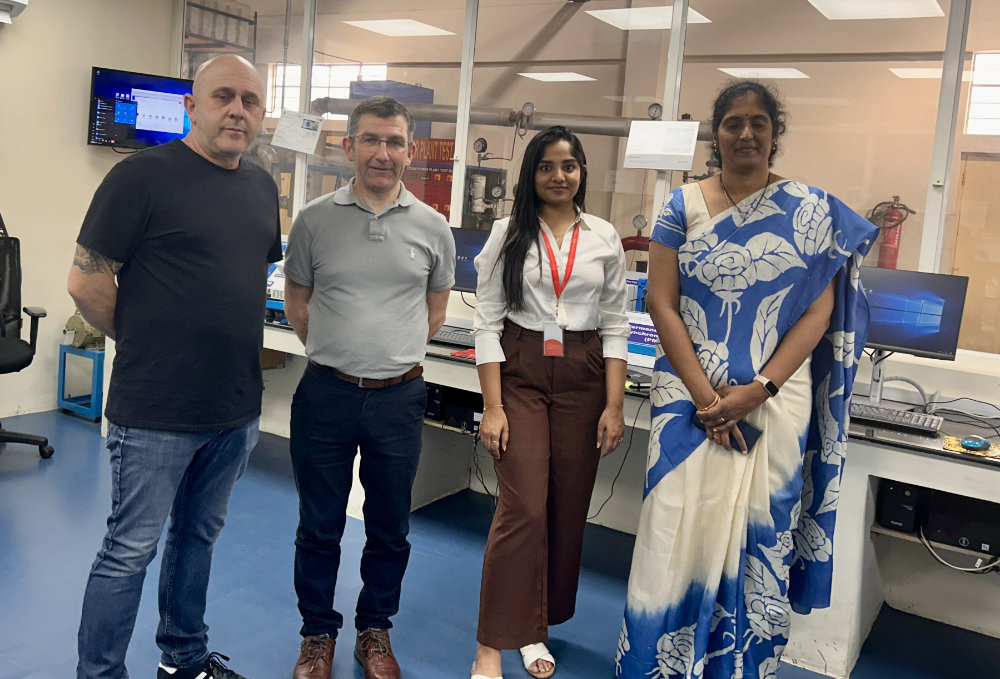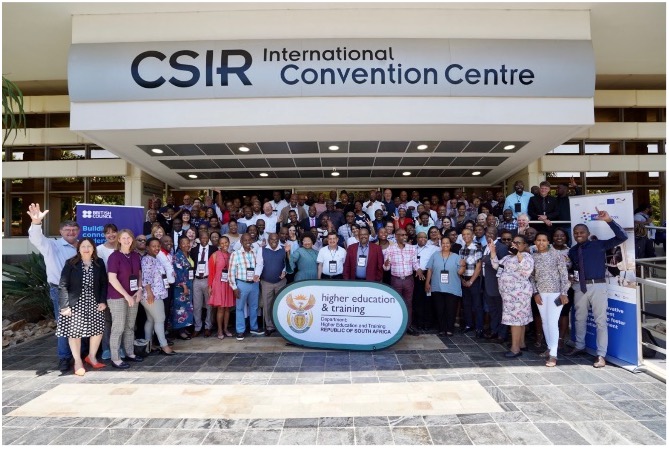
Hunan China Teacher Training
Northern Ireland Colleges delivered an upskilling programme to 10 TVET practitioners from Hunan Industrial Polytechnics in China following successful trade missions to Beijing and Shanghai.
This was a commercially funded intervention that provided a unique opportunity for TVET practitioners to visit Northern Ireland Colleges and participate in a bespoke teacher upskilling and cultural experience programme.
The 10-day teacher training programme delivered collaboratively by the NI Further Education Colleges, involved the delivery of expert-led upskilling in areas including Apprenticeships, Project Based learning and Quality Assurance.
Northern Ireland (NI) Colleges is an alliance of six regional Further and Higher Education Colleges, located in Northern Ireland (UK), specialising in Technical and Vocational Education and Training (TVET). Collectively, NI Colleges operate across 40 campuses, resourced by 3,500 professional and technical staff who service some 154,000 annual enrolments. Working alongside a network of 10,000 employers, NI Colleges provides a highly innovative curriculum that ensures learners develop professional and technical skills, increasingly at higher levels, to meet employer needs.
NI Colleges has a successful track record of delivering TVET training and capacity building projects across the globe with 250 international partnerships and over 60 “live” annual projects. It sends 600 students and 220 staff on mobility each year and welcome over 420 visitors to learn, share best practices and explore the cultural aspects of life in Northern Ireland, UK.
The 6 colleges that make up Northern Ireland Colleges are:
The Chinese vocational education system is experiencing several extensive reforms. The professional development of TVET teachers is a focal point of such reforms, being considered as a means of guaranteeing the competitiveness of the country.
In this context, NI Colleges were tasked with designing and implementing a 10-day TVET focused upskilling programme for Chinese teachers and trainers with a curriculum background in Mechanical, Automotive and Electrical Engineering.
The study-visit to Northern Ireland was to focus on exchanging UK best practices in the areas of Apprenticeship Training and Cooperation, TVET quality & evaluation systems and effective TVET teaching methods.
NI Colleges were required to design the full 10-day training programme, and organise translation services, accommodation, hospitality, and cultural experiences for the duration of their visit.
The TVET training provided a unique opportunity for participants to study and visit different campuses within the Northern Ireland College network.
The programme was fully adapted to suit the curriculum backgrounds of visiting staff and was broken into tailored training sessions, participative workshops, industrial visits, classroom observations and facility tours.
The training delivery style included a mixture of job shadowing, student and lecturer observations mentorship, collaborative group learning and self-learning & reflection activities.
The training was delivered by NI College teachers and involved them sharing their knowledge and expertise in a variety of important TVET areas including NI apprenticeship models, best practice employer engagement strategies, qualification & assessment frameworks, project-based learning teaching strategies and effective quality assurance mechanisms.
The delegation enjoyed a welcome ceremony at Belfast City Hall and a celebratory presentation event at Parliament Buildings.
Cultural experiences were also included the programme and included excursions to a number of NI landmarks including the Giants Causeway and Titanic Buildings.
The intervention had direct impact on the teaching skills and practices of Chinese teachers practicing in technical and vocational education settings. Feedback from the Vocational Education Teachers indicated programme objectives were achieved and training content was well aligned to their training needs.
According to one participant:
“As a professional course’s teacher, I have been enlightened in a lot in teaching theory and practice. I will now implement PBL and Whole-brain learning to my actual teaching work. This will help to improve the quality of curriculum design, classroom teaching”.
The programme has developed their practical teaching skills to make lessons inspiring, enjoyable, engaging and more productive for TVET learners.
Participants gained the ability to create a positive, supportive, and inclusive learning environment through the application of world-class TVET practices from the UK.
The quality of teacher education is crucial in determining the skills of future workers, and thus this intervention will have a long-term impact on participants ability to create and deliver more valuable TVET and embed their learnings in the Chinese vocational education system.
Best practice examples have been adopted and thus the quality of VET in general has been enhanced along with the mobility of TVET teachers strengthened.









